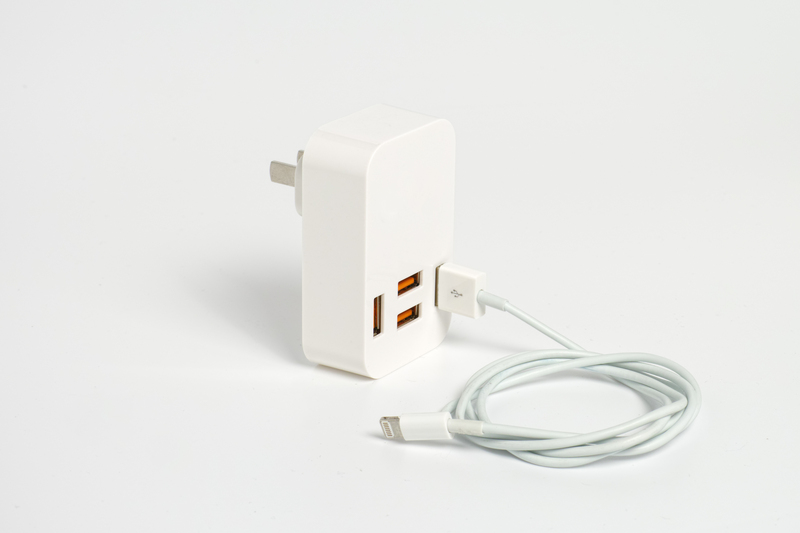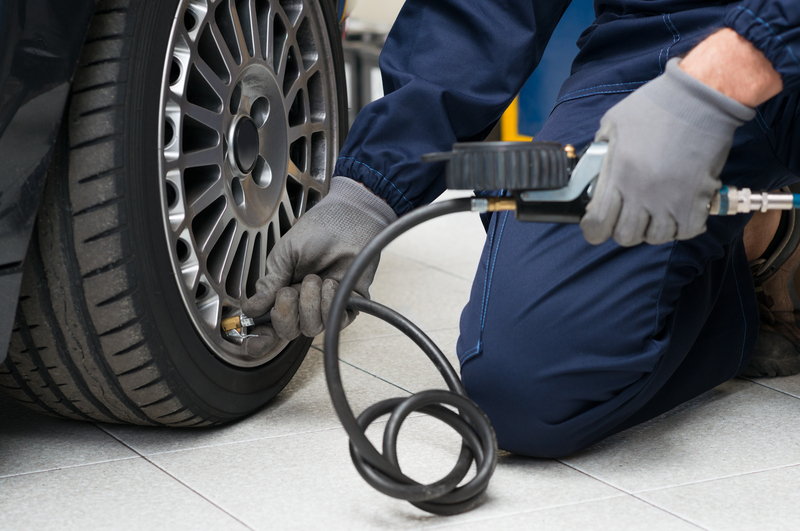The House Moving Checklist for a Calm Transition
Relocating to a new home is an exciting milestone. However, without proper organization and planning, it can quickly become overwhelming. Whether you are moving across town or to a new city, having a thorough house moving checklist ensures a calm and stress-free transition. In this comprehensive guide, we provide you with detailed steps and expert tips to streamline every stage of your move.
Why Use a Moving House Checklist?
Staying organized is the key to a smooth house move. Checklists help minimize forgotten tasks, reduce last-minute stress, and ensure nothing slips through the cracks. They break down a complex process into manageable components, so you can focus on settling into your new home with peace of mind.
- Reduce stress: Systematic tasks minimize unexpected surprises.
- Save time: Prioritize and tackle tasks efficiently.
- Stay on budget: Plan costs and avoid last-minute expenses.
- Ensure nothing gets left behind: Every item and obligation is accounted for.
- Stay on schedule: Track critical dates and deadlines effortlessly.

Ultimate House Moving Checklist
Below, you will find a week-by-week breakdown for your ultimate calm transition house moving checklist. Adapt as needed based on your timeline.
8 Weeks Before Moving Day
- Determine your moving date: Coordinate with your landlord, new home seller, or removal company.
- Create a moving binder: Document quotes, receipts, inventory lists, and important contacts in one place.
- Research moving services: Get estimates from professional movers, truck rental companies, or find friends to help.
- Sort your belongings: Start deciding what to keep, donate, sell, or discard. A decluttered home eases your move.
- Budget for your move: Calculate costs for packing supplies, movers, cleaning, and deposits.
6 Weeks Before Your Home Move
- Begin packing non-essential items: Seasonal gear, decoration, or little-used kitchenware can be boxed early.
- Collect packing materials: Obtain sturdy boxes, tape, bubble wrap, and markers for labeling.
- Notify your landlord (if applicable): If you're renting, serve required notice to avoid deposit loss.
- Research schools and doctors: If moving with family, investigate new schools and register with local healthcare providers.
- Transfer insurance: Contact your home and contents insurer about moving coverage.
4 Weeks Before Moving Day
- Arrange time off work: Book holidays around your moving day if necessary.
- Confirm arrangements: Re-check bookings with your chosen moving company or truck rental.
- Start using up food: Consume perishables, frozen foods, and pantry items.
- Gather vital documents: Secure passports, birth certificates, wills, and contracts in a safe, accessible place.
- Begin address updates: List all accounts needing an address change (banks, post office, subscriptions, utilities).
2 Weeks Before Moving
- Finish most packing: Pack up seldom-used rooms, books, and decorative pieces.
- Arrange pet or child care: Organize help for the moving day to keep kids and pets safe and stress-free.
- Notify friends and family: Share your new address and moving date as needed.
- Dispose of hazardous materials: Safely discard paint, chemicals, or batteries that moving companies may not transport.
- Recycle or donate: Drop off unwanted items at charities or arrange pick-up for donations.
1 Week Prior to Your Move
- Pack an essentials box: Include toiletries, chargers, snacks, a change of clothes, vital paperwork, and first-night necessities.
- Label every box: Clearly state room, contents, and whether items are fragile for fast, safe unpacking.
- Clean as you pack: Wipe cupboards, drawers, and rooms once empty to reduce last-minute effort.
- Confirm utilities transfer: Set up gas, electricity, water, and internet to avoid disruptions at your new address.
- Defrost the refrigerator/freezer: Prevent leaks and prepare large appliances for moving.
On Moving Day
- Take meter readings: Record electricity, gas, and water readings at both old and new homes.
- Final walkthrough: Inspect every room, closet, and garage for overlooked items.
- Supervise movers: Guide the team with box locations and answer questions.
- Leave keys and instructions: Hand keys to new occupants or your realtor as arranged.
- Secure your old property: Shut all windows, lock doors, and check all appliances are off.
First Week in Your New Home
- Unpack essentials first: Focus on the kitchen, bathrooms, and bedrooms for immediate comfort.
- Test alarms and utilities: Confirm smoke detectors, water, gas, and power supply work correctly.
- Register your address: Report your move to local authorities, healthcare, and postal services if needed.
- Explore your neighborhood: Locate shops, parks, public transport, and introduce yourself to neighbors.
Packing Tips for a Stress-Free House Move
Packing is a major element in your house moving checklist for a calm transition. A systematic approach will keep you organized and prevent damage or loss.
Pro Packing Strategies
- Start early and small: Begin packing little by little, well ahead of time, to avoid last-minute chaos.
- Label everything: Use colored stickers for rooms or write clear descriptions on every box.
- Use suitable materials: Wrap fragile items in bubble wrap or towels; never overfill boxes.
- Pack by room: Keep items from the same room together to simplify unpacking.
- Keep hardware organized: Place screws and fixture parts in labeled bags taped to relevant furniture.
Special Item Tips
- Valuables: Important documents, jewelry, and heirlooms should travel with you, not the movers.
- Electronics: Photograph cable setups before disconnecting and pack gadgets in their original boxes if possible.
- Plants and perishables: Check moving company policies on transporting living items and finish up perishables before moving day.
Change of Address Checklist
Updating your address is crucial and can easily be overlooked. Here is a comprehensive list of who you should notify when moving house:
- The post office: Set up mail forwarding or redirect service.
- Banks and financial institutions: Credit cards, loans, and investments.
- Insurance providers: Vehicle, health, life, and home insurance.
- Utilities and service providers: Gas, electricity, water, broadband, TV, and mobile phone companies.
- Employers & HR departments: So payroll and important mail are updated.
- Government agencies: Tax office, electoral roll, vehicle registration, licensing authorities.
- Healthcare professionals: Doctors, dentists, opticians, and veterinarians.
- Subscriptions and memberships: Magazines, loyalty cards, fitness clubs, delivery services.
- Friends, family, and schools: Keep everyone informed for emergencies and ongoing communications.
Ensuring a Calm Transition
For a trouble-free move, preparation is everything. The emotional challenge of leaving an old home while planning for a new one can be easily managed if you maintain a steady pace and rely on your moving house checklist. Here's how to make your transition as calm as possible:
Mental and Emotional Well-Being
- Manage expectations: Not everything will go perfectly. Stay flexible and patient.
- Take breaks: Avoid burnout by scheduling downtime.
- Stay hydrated and nourished: Drink water and eat proper meals, especially during moving day.
- Ask for help: Delegate tasks amongst family and friends, or hire professional moving assistance.
- Explore mindfulness: Practice calm breathing exercises during stressful moments.
Extra Tips for a Smooth Home Transition
- Keep valuables close: Always keep irreplaceable items with you rather than in the moving van.
- Prepare for emergencies: Keep a basic first-aid kit and important contacts handy.
- Get to know your new home: Check fuse boxes, water shut-off valves, and security systems soon after arrival.
- Welcome your new neighbors: Introduce yourself and ask any questions about the area.

Frequently Asked Questions - Moving to a New Home
- How early should I start planning my house move?
Ideally, you should start 8-12 weeks before your scheduled moving date for the calmest experience. - What's the best way to pack fragile items?
Wrap each item individually with bubble wrap or towels, pack tightly but not too full, and label the box as "fragile". - Should I hire professional movers?
This depends on your budget, time, and move size. For large or complex moves, professionals can save you time and stress. - How do I move with pets?
Secure them in transport cages, carry familiar toys and bedding, and set up a safe space at your new home immediately. - What documents should I keep handy during the move?
Identification, property paperwork, financial documents, leases, and any move-related contracts are essentials.
Conclusion: Enjoy the Excitement of a New Start
Relocating your life is a big undertaking -- but, with a comprehensive house moving checklist, you can transform the process into a series of manageable steps. From planning and packing to settling into your new neighborhood, thoughtful organization ensures a calm transition for the whole family.
Start using this checklist today to keep stress at bay and focus on the adventure ahead. Remember: the secret to a smooth move is preparation, patience, and positivity! Happy moving!